Modern Slavery and Human Rights
Management Approach
We are committed to operating responsibly and establishing and adhering to the highest ethical standards and aspire for our suppliers to do the same. We reject any activities which may cause or contribute to modern slavery, including forced or bonded labour, child labour, human trafficking, slavery, servitude, forced marriage or deceptive recruiting for labour or services. Our strategy of operating only in Tier 1 jurisdictions of Australia and Canada mitigates our geopolitical and human rights risks. We recognise that lower spend on suppliers does not equate to lower Modern Slavery Risk, and that with the maturing of Modern Slavery legislation comes increasing expectations for maturity in our Modern Slavery reporting. This includes the mapping of Tier 2 Suppliers, identifying and assessing their risk potential, and prioritising risk management based on materiality. We have no exposure to artisanal and small-scale mining, nor conflict-affected and high-risk areas, in proximity to our existing and exploratory operations, contributing to the mitigation of business wide human rights impacts in the form of child labour, and abuse, and others in these areas.
Respect for human rights is a core value at Evolution. Our approach to human rights is supported by the conviction that the business activities can and should have a positive impact on the lives, livelihoods and rights of individuals and communities. We acknowledge that operations could potentially cause, contribute to, or be directly linked to negative human rights impacts. We seek to evaluate, prevent and mitigate any potential for adverse impacts and to contribute to the promotion and protection of human rights. We maintain secure grievance mechanisms at each of our operations, including Whistleblower protections.
One of our nine Sustainability Principles, Human Rights, underpins the Human Rights Sustainability Performance Standard. The Standard establishes principles and actions for how we identify, prevent, mitigate, track and report on human rights risks and issues associated with projects and operations. It draws on the Universal Declaration of Human Rights, the UN Guiding Principles on Business and Human Rights, and the UNGC. As a signatory to the UNGC, we have committed to advancing all Ten Principles, including Principles One and Two: human
rights and respect for human rights, and incorporate principles across our processes and systems.
We also have an Evolution Modern Slavery Business Guide which was developed to assist with the risk assessment of modern slavery occurring in our supply chains, the steps being taken to mitigate the risk, and the actions required to provide assurance that our business is free from modern slavery. Through the Guide, all personnel are instructed that remediation actions adopted should be designed to work with suppliers to mitigate modern slavery whilst protecting the wellbeing of those enslaved.
Our third Modern Slavery Statement was approved in FY23. Each year, the Statement is endorsed by the Board through the Risk and Sustainability Committee, and Leadership Team. We consider that any form of modern slavery is unacceptable and acknowledge our responsibility in helping to eradicate it. During FY23, we continued to apply a rigorous methodology to manage modern slavery risks, including increased measures with our medium to high-risk suppliers. We are working to proactively reassess the multiple tiers of suppliers that form the extended supply chain and have explicitly established that we operate only in low risk, Tier 1 jurisdictions to help mitigate this risk.
Our risk assessment process establishes the identification of modern slavery by considering country risk, product/ service category risk and supply chain risk. We have collaborated with each of the operations to evaluate and rank suppliers as ’Low’, ‘Medium’ or ‘High Risk’. We have issued 125 questionnaires on human rights and modern slavery risks to those ’Medium to High Risk’ suppliers identified as having potential risks with human rights, labour rights, business ethics, and policies for sustainable business operations. The assessments to date have not identified any modern slavery practices in the operations or supply chain, and no corrective actions have been implemented, noting the requirement for ongoing risk mitigation, process review, measurement, and assessment.
In FY23, we:
- Updated the Modern Slavery Self-Assessment Questionnaire (SAQ) toolkit to gain a greater insight and capacity to evaluate for the potential risk of modern slavery in business operations and their supply chains
- Conducted Modern Slavery Deep Dive sessions with key supply partners to better evaluate how they are managing and mitigating modern slavery risk within their supply chain and to allow an opportunity for shared learning. These were each meaningful sessions
that promoted robust discussion, improved tracking, progress and advancement for both parties - The Modern Slavery Working Group attended several education sessions with external providers for continual learning, and to broaden knowledge in this space, including increasing skills associated with the legislation amendment recommendations
All employees must complete Modern Slavery Training in their onboarding and additional training is provided to personnel with higher levels of interaction with the supply chain. In FY23, 111 of our employees also completed additional mandatory modern slavery training. This specific training includes:
- The basic principles of the Modern Slavery Act 2018 (Cth)
- How employees can identify and prevent modern slavery and human trafficking
- What employees can do to ‘flag’ potential modern slavery and human trafficking issues to relevant parties within the business
- What external help is available to identify and prevent modern slavery
- Maintain supplier requirements to conduct their business in a manner that is consistent with the Modern Slavery Act 2018 (Cth)
- Included modern slavery as a discussion point in our Supplier Relationship Meetings (SRMs) with key suppliers
For more information, see the Modern Slavery Statement provided on our website.
Performance
The reporting of all Human rights incidents is captured in our standard incident reporting protocols and Incident Management System. Audits are regularly undertaken to assess compliance against our Human Rights Performance Standard, and this is incorporated within the
Assurance Program. In FY23, no incidents or violations of human rights, including the rights of Indigenous peoples, freedom of association, child labour, youth labour with exposure to high-risk work, or forced labour involving our employees were recorded during the reporting period.
We requested 125 Modern Slavery Self-Assessment Questionnaires (SAQ) from our suppliers during the year and no actual modern slavery risks were identified in our supply chain during FY23. One incident of potential modern slavery was identified and investigated during FY23, with no further action required.
While no instances of modern slavery were identified, we regularly engage suppliers to review their current business practices and encourage their robust governance to identify, investigate and remedy their risks of modern slavery. We continue to monitor and assess those suppliers identified as high-risk to ensure they understand our commitment towards sustainable procurement practices across our supply chain.
ACSI recently released its 2023 review of modern slavery reporting for ASX200 companies, including Evolution Mining. The review benchmarked us against our peers (Global Industry Classification Standard) and highlighted areas for improvement. Evolution has taken action from this feedback, and improved the practices and quality of reporting in:
- Structure, operations and supply chains
- Description of risks
- Actions to assess and address risks
- Effectiveness of actions
- Consultation, approval and signature
We remain committed to engaging with our internal and external partners, such as ACSI and other suppliers through our SRMs, to gain feedback and facilitate continuous improvement, including in our reporting.





